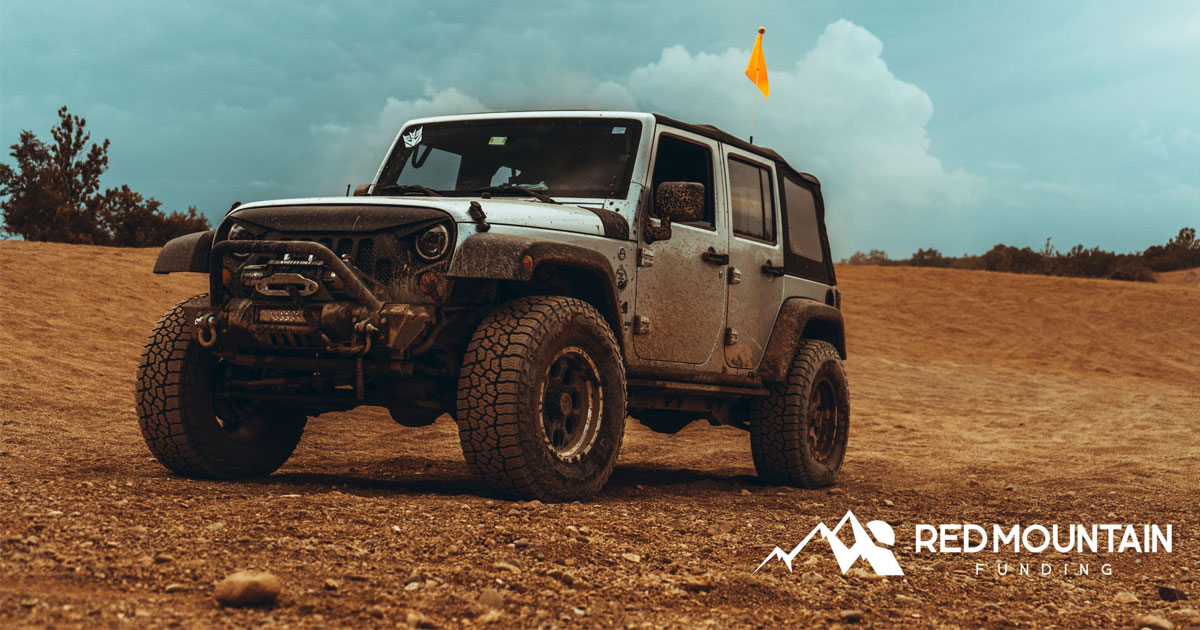 Photo from red Mountain Funding
Photo from red Mountain Funding
Originally Posted On: https://redmountainfunding.co/blog/comparing-jeep-models/
We’re comparing Jeep models and even mentioning some alternatives to the icon! The Jeep has been one of the most iconic vehicles on the road for nearly a century. Born of wartime necessity, the Jeep came home to successfully establish itself as America’s favorite recreational vehicle. Like Jeeps themselves, Jeep lovers come in all different styles. Whether you’re rebuilding a vintage 40s CJ, putting money down on a state-of-the-art off-roading rig, or something in between, there is something undeniably cool about getting behind the wheel of a Jeep.
In fact, the style is so popular there are even a host of nearly as iconic non-Jeep clones on the market. Let’s take a deeper look to see if we can deconstruct this “cool factor” that has somehow stood the test of time. After that, we’ll move on to a look at the best Jeeps available today.
Jeep History and Models
The story of the Jeep began under the looming shadow of World War II when the United States Army was taking bids from the era’s automobile manufacturers for what it described as a “light reconnaissance vehicle.” A mere three companies felt capable enough to submit bids. Among those automakers were Willys and Ford. The third company was Bantam, which had been formed from the remains of bankrupt automaker American Austin Car Company in the 1930s.
Many automotive historians credit Bantam with the creation of the original Jeep design in 1940, and the Army tested Bantam’s design favorably for a month. However, the company did not have the technical or logistical capacity to meet the Army’s demand for 75 units built per day. Unfortunately for Bantam, the Bantam design—legally the property of the Army—was then passed along to Willys and Ford so that over half a million Jeep-like vehicles could be built for the war effort.
Willys
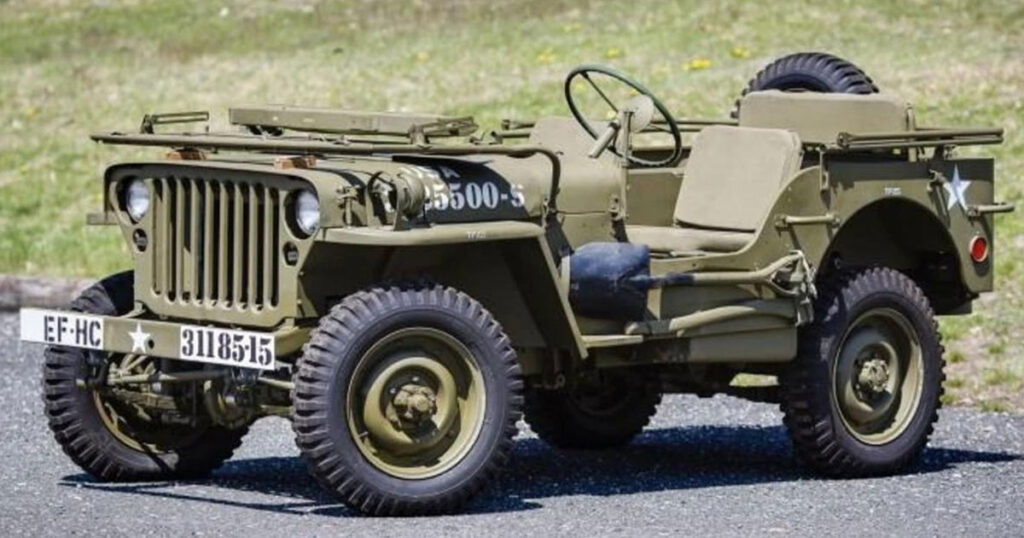
The Willys-Overland prototype was delivered to the Army on what would become Veteran’s Day of 1940, having been redeveloped from the existing design in less than three months’ time. It was named “Quad” after its innovative 4-wheel drive system. However, it was not the first 4×4 automobile to be produced.
After more testing and redesign of the prototypes, the upgraded Willys MA was ready for production in 1941 and would soon be further re-tweaked into the Willys MB. The most remarkable thing about this original Jeep was how broadly the military used it. Jeeps were driven by soldiers in a wide range of roles and stations, with special field kits available for adapting the vehicle to use in deserts, water crossings, and other applications.
CJ
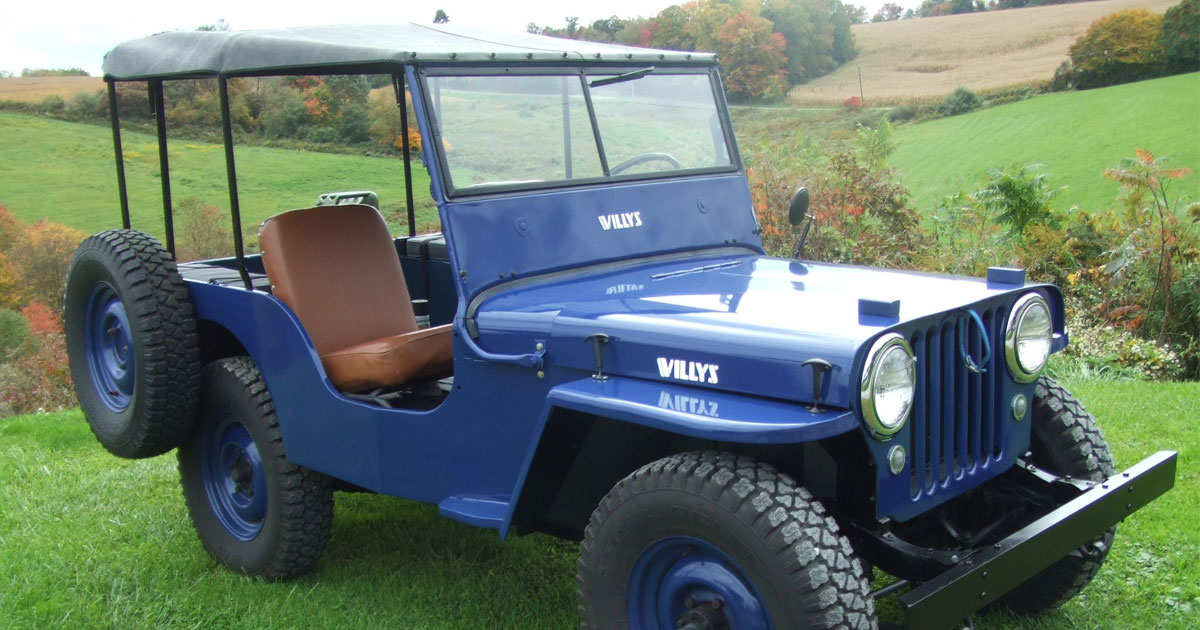
By the midpoint of the 1940s, the beloved military vehicle had been reworked into the very first civilian-ready Jeep, the famous CJ. Some are surprised to learn that the first CJ was marketed as a farming vehicle, meant to become a nimble, versatile replacement for a tractor for small and medium operations. According to the marketing hype of the time, it could replace two sturdy draft horses in terms of total farm work achieved in a day.
Of course, the design had already proven to many Americans in wartime that it could do much more than rumble through a hay field. While many farmers did indeed employ the CJ-2A to remarkably successful effect throughout the late 40s, the Jeep was always too versatile to be kept “out to pasture.” The main Willy’s MB/CJ family tree would keep its basic design intact for decades and evolve into today’s iconic Wrangler line.
Model 463 Wagon
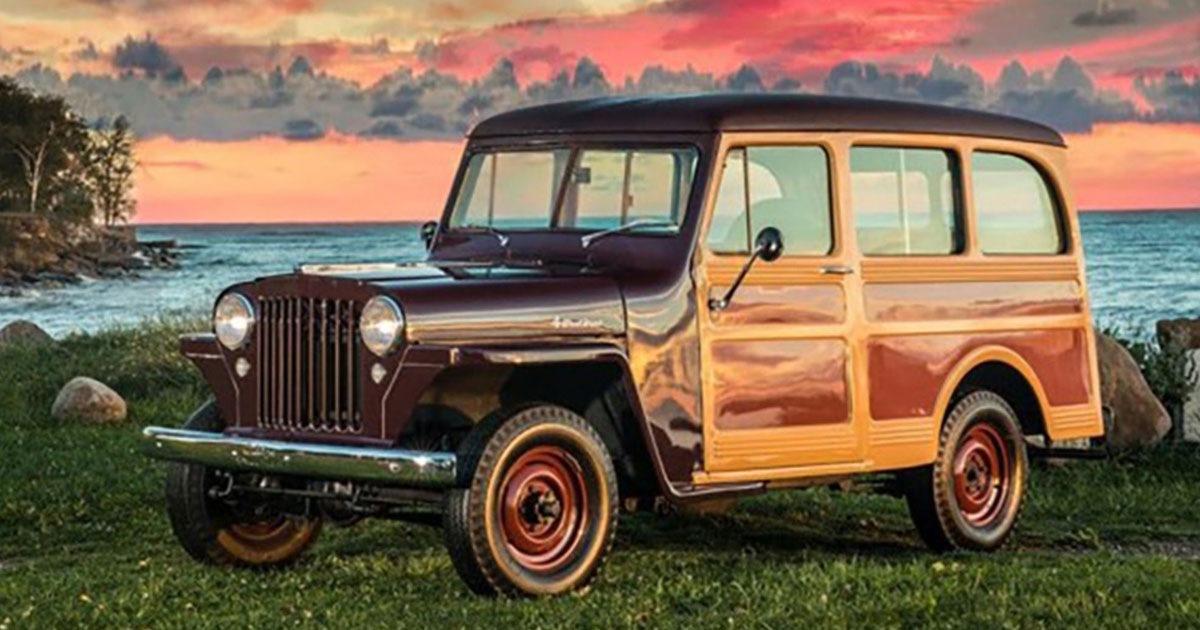
In 1946, Jeep expanded its offerings to include the Model 463, an all-steel utility station wagon. By 1949, the brand’s iconic 4-wheel drive would be added to the wagon. This was also one of the first vehicles with a drop-down tailgate, the sort now ubiquitously linked to pickup trucks. This first wagon would evolve over the years into the Cherokee and Wagoneer lines that are popular with families and outdoor enthusiasts today.
Unconventional Jeeps
While the Wagon model became the Cherokee and Wagoneer and the Willys CJ and MB lines became the Wrangler, there were a few notable oddities along the way.
The Gladiator
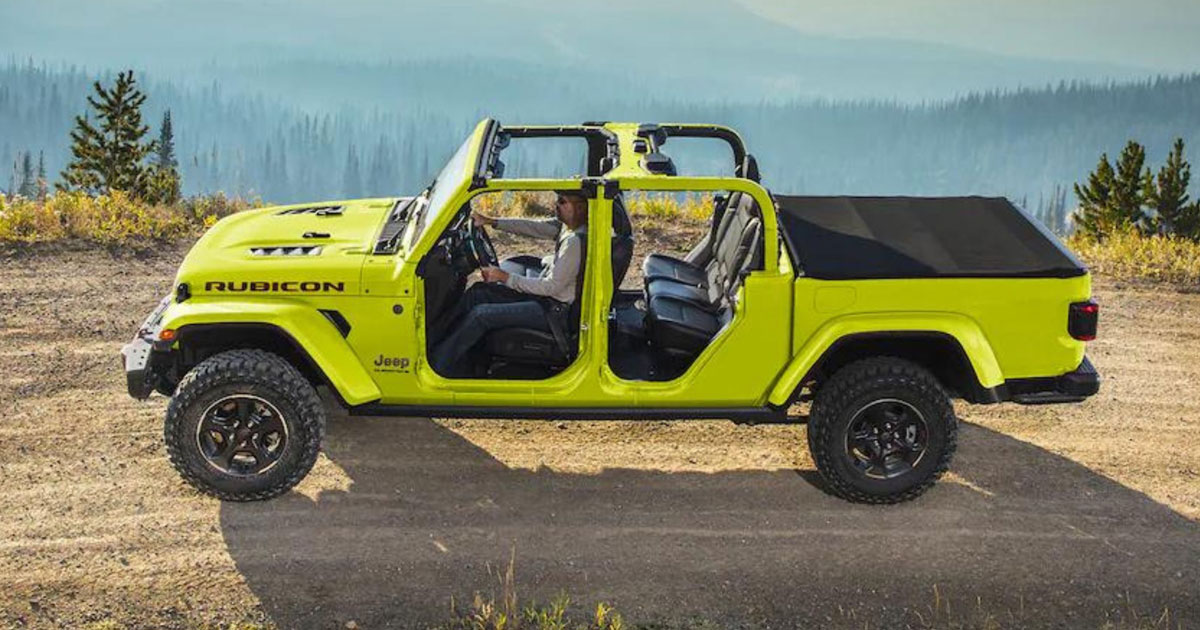
The Gladiator was a sporty Jeep brand pickup truck that emerged in the late 60s but was discontinued by the late 80s. It is now amid a successful comeback arc. Production of new Gladiator J-Series trucks began in 2019.
CJ-10
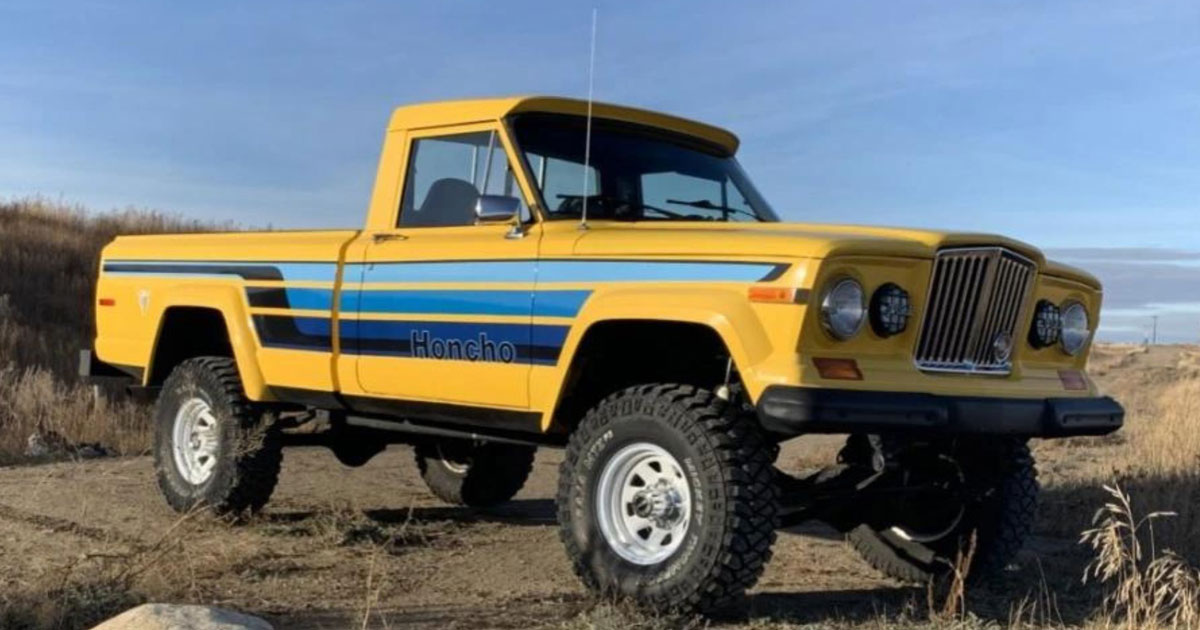
This was a less enduring version of the J-Series pickup than the Gladiator, but it had its own unique charm. Sold mostly to overseas markets (it was lovingly dubbed “the one tonner” in Australia), this truck features square, fender-mounted headlights and a uniquely ugly grill with too many slots to be identified as a Jeep on sight. It could even be found in a soft-top convertible model.
The Jeepster
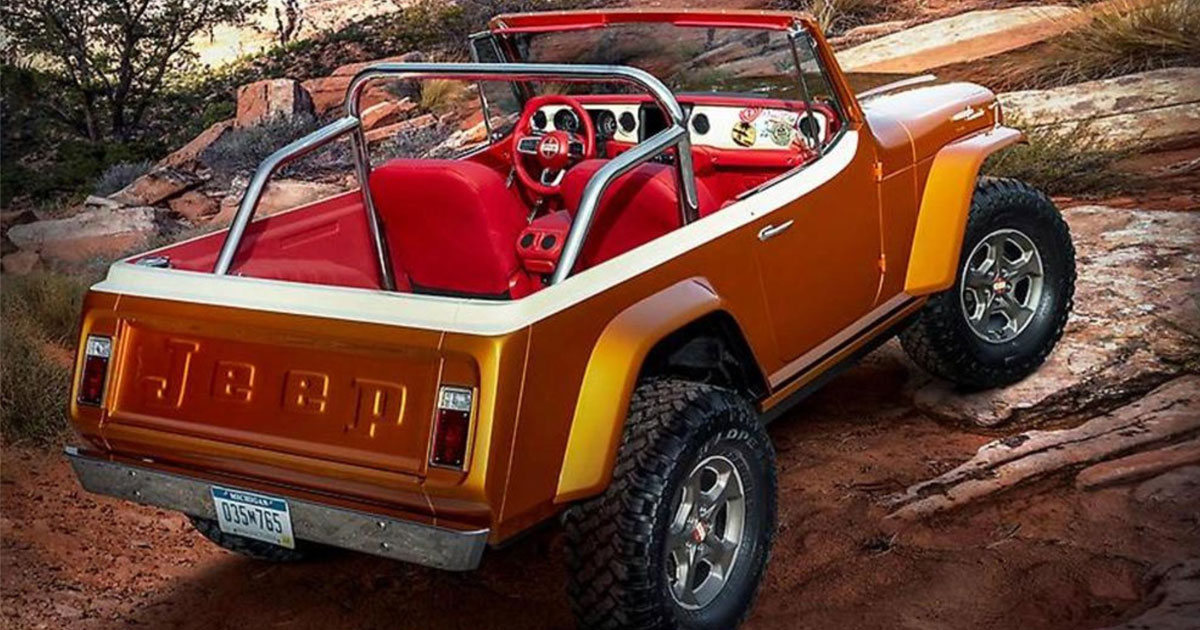
A Jeep without a top to its cab has been a common enough sight since the brand’s military origins, and removable hard and soft tops are still extremely popular with the Jeep crowd today. The Jeepster wasn’t just a Jeep with a removable top, however. It was a genuine convertible built specifically for top-down driving, with a sporty look that simply cannot be mimicked by any non-Jeep vehicle.
The Fleetvan
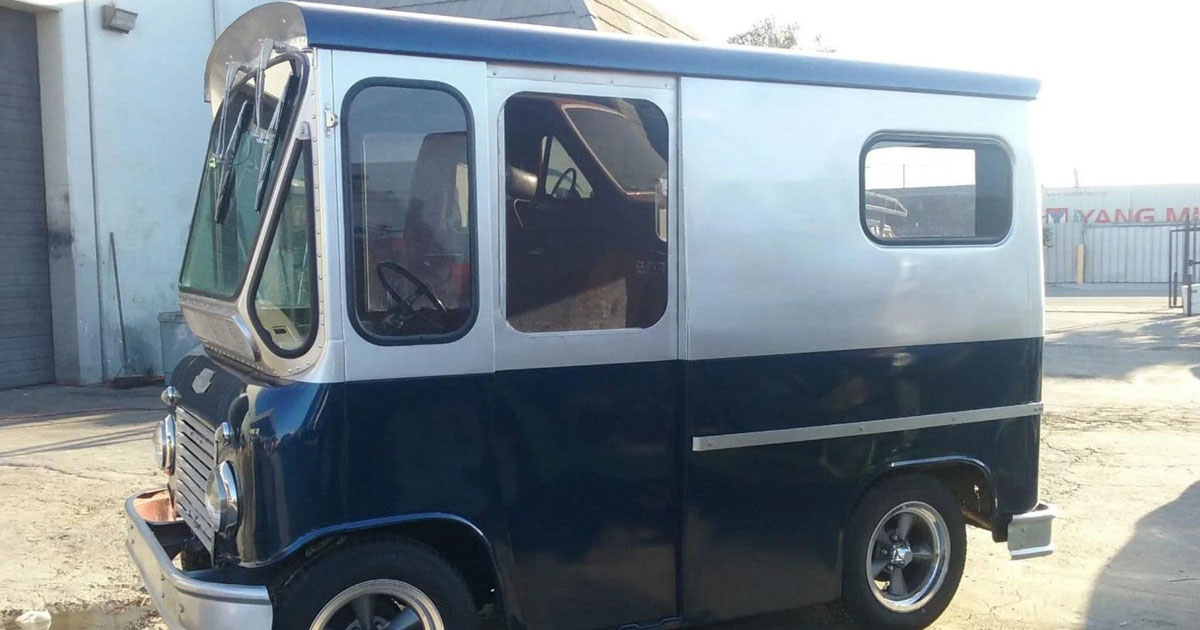
The FJ-3A, FJ-6, and FJ-9 were Jeep’s valiant attempts to break into the cargo van market. They were around primarily in the 60s and 70s. Many units ended up in the United States Postal Service fleet.
The Forward Control
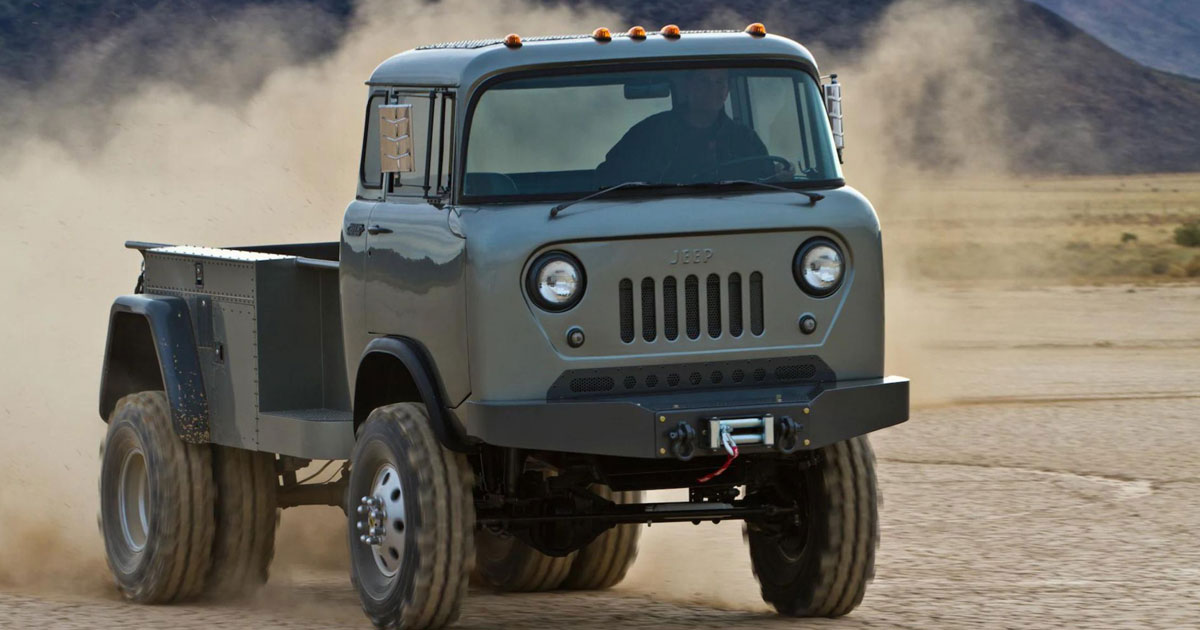
Without the iconic seven-slot grill, the Jeep Forward Control might easily be mistaken for some sort of Volkswagen truck. The boxy, cab-forward design pulling a shallow bed makes this vehicle unmistakable. However, it was certainly not Jeep’s most successful model.
How Many Types of Jeeps Are There?
When we’re talking about contemporary jeeps, they can be broken up into three basic categories. So, what are the 3 types of jeeps?
Classic Jeep
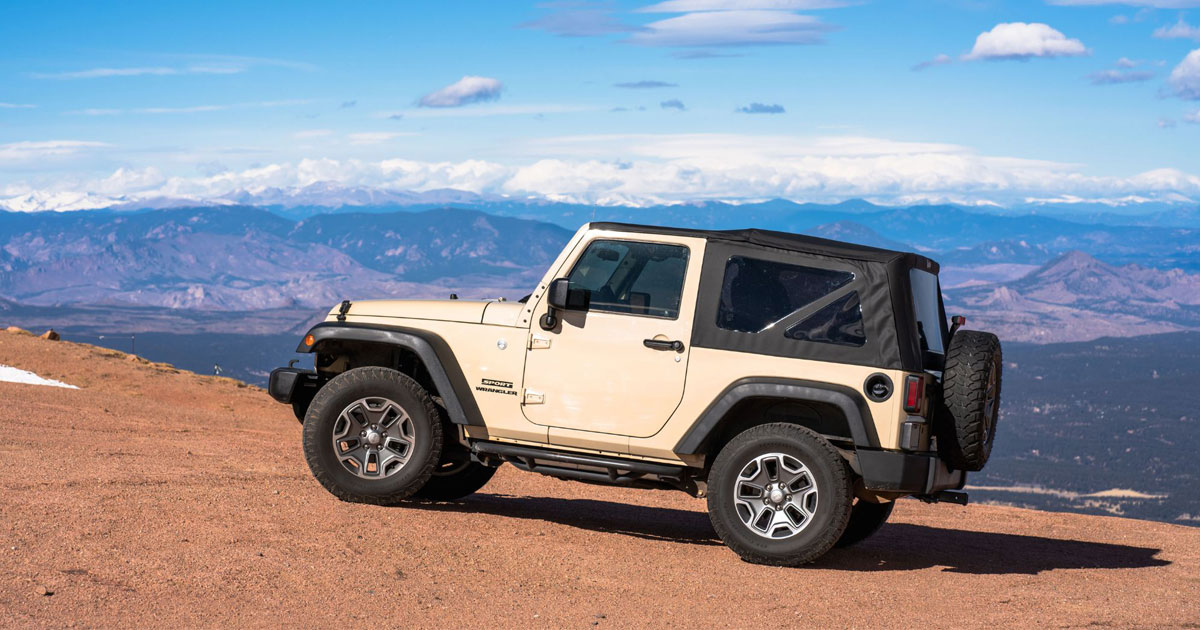
The direct evolution of the classic CJ-style Jeep is today encapsulated by the Jeep Wrangler line. Wranglers are compact, nimble, and powerful, staying true to both the spirit and style of the original military utility vehicle. Like their military counterparts, they have a staggering number of available package options and can be outfitted with a nearly limitless range of aftermarket Jeep accessories. When someone says “Jeep” today, what most non-Jeep aficionados will picture in their heads is likely a Wrangler.
The bare-bones Wrangler package starts at around $30,000. With aftermarket mods and performance parts, there is truly no limit to how much money you can sink into customizing your Jeep. Or, if you have a spare $70,000 to spend, you can get the top-of-the-line Wrangler High Altitude 4xe model with all the available features from the factory.
SUVs, Wagons, and Hatchbacks
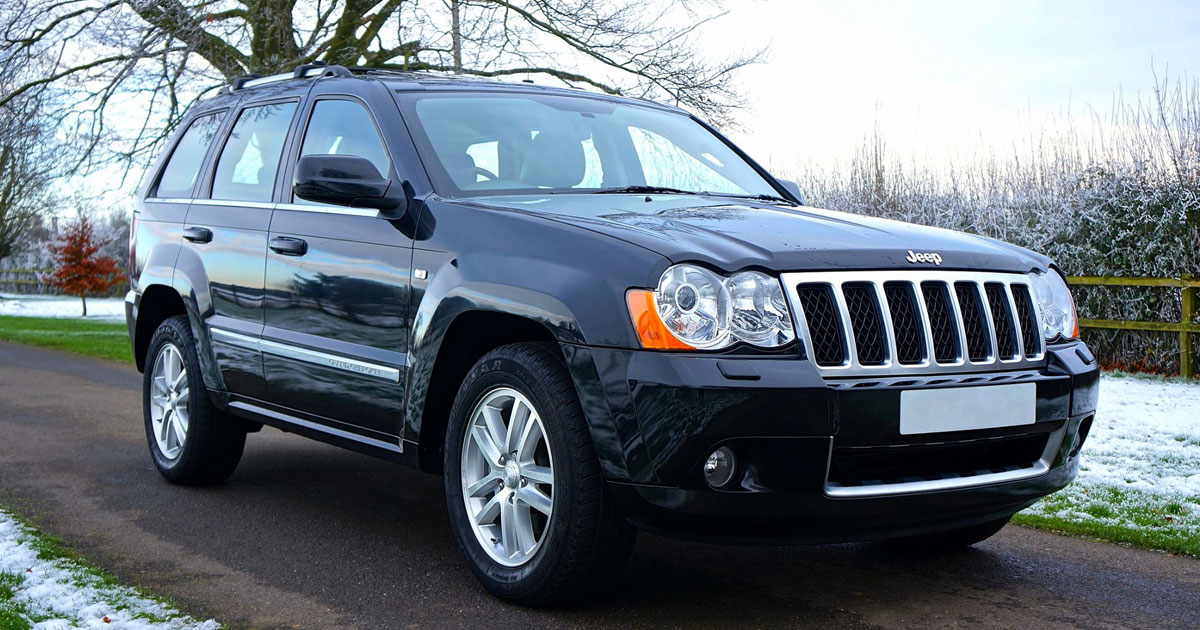
In addition to the body style we commonly call “Jeeps,” the brand has also been pumping out wagon-style vehicles alongside them since the 40s. Jeep has created several interesting SUV models in the years since. Today, this legacy is represented by the well-established Cherokee, Renegade, Wagoneer, and Compass lines. Between these lines and all their sub-models and packages, you can find the perfect Jeep SUV for long-distance road trips, off-road mudding, soccer practice, or anything in between.
Suggested Reading: Cleaning Jeep Floor Mats
They also come in a wide range of prices to fit just about any family’s budget. A 2WD Renegade Sport hatchback with the basic package costs under $25,000 new, while a fully decked-out Grand Wagoneer is over $100,000.
Gladiator Pickup
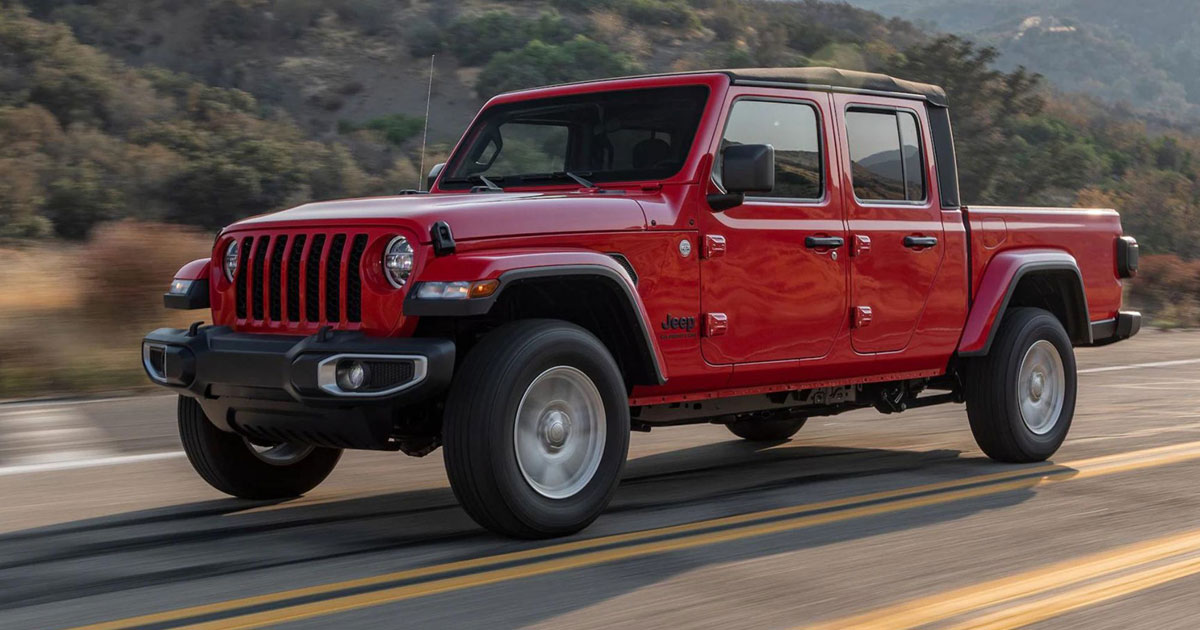
As we mentioned above, the Jeep Gladiator pickup truck is a mid-century concept that was relaunched for the 2020s. The modern Gladiator stays true to the iconic Jeep styling in that the front end looks a lot like its cousin, the Wrangler. However, the main selling point of the Gladiator is the short pickup bed in the back.
The most basic edition of the Gladiator retails for around $37,500. Adding accessories and features can easily make it a $50,000+ vehicle.
Which Jeep Model Is the Best?
Because of the wide range of models and packages available from Jeep, this is an impossible question to answer. The best Jeep for you will depend entirely upon your style, your performance requirements, and what you’ll be using the vehicle to do. The “best Jeep” for a daily highway commuter will look completely different from the “best Jeep” for someone traveling over rough terrain in remote areas.
Here are some things to consider:
- Will you be driving your Jeep for occasional weekend fun? (We recommend the Wrangler with sports accessories and a removable hardtop.) Or will you be driving the kids back and forth to school daily? (Try the Compass or Cherokee.)
- Are you looking to go hybrid? Modern Jeep models designated “4xe,” pronounced “four by E,” are hybrid, plug-in models. (Check out the Wrangler 4xe and Grand Cherokee 4xe).
- For those coveted vintage vibes, you might consider purchasing and fixing up a used Jeep instead of buying a new one. At this point, there are CJ models old enough to be your grandfather, but parts for a rebuild are still easy to find, thanks to a vibrant community of restorers and aficionados. Opening your search up for pre-owned Jeeps expands your options.
If you are totally new to Jeeps, we recommend that you start by test-driving a Wrangler. Then, discuss your likes and dislikes with the Jeep dealer and see if they can direct you to a model that might fit you better.
Best Jeep Alternatives
You’re probably thinking, “Wait a minute, what is a non-Jeep jeep?” That’s a valid question, as it does seem like something of a paradox. What we’re talking about, however, are simply Jeep-like or Jeep-inspired vehicles that aren’t made by Jeep. We like to call them jeep clones.
Here are some of our favorites:
Toyota FJ
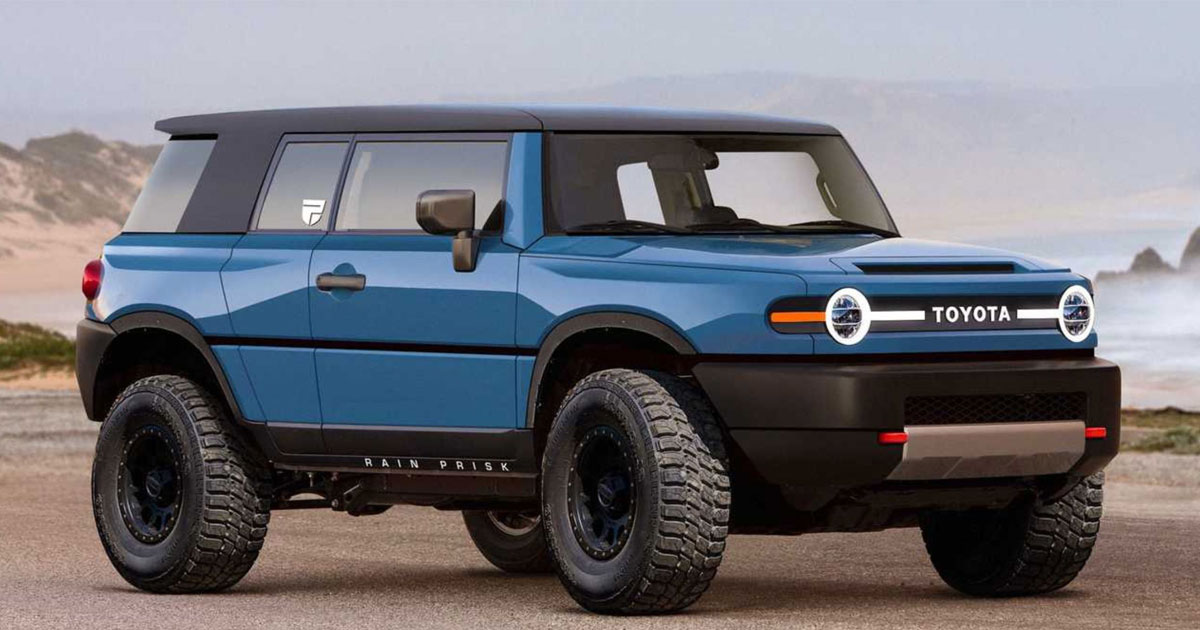
The name is even Jeep-like in this case, and it only takes one look at that box of a body and those quirky, close-set round headlights to understand why. In a world of Jeep-inspired off-road vehicles, the Toyota FJ is an unabashed Jeep clone that was around from 1963 to 1984. Today, you might consider looking at a Land Cruiser or a used FJ Cruiser (Toyota no longer makes the FJ Cruiser) if you seek something Jeep-like and Toyota-built.
Suzuki (Various Models)
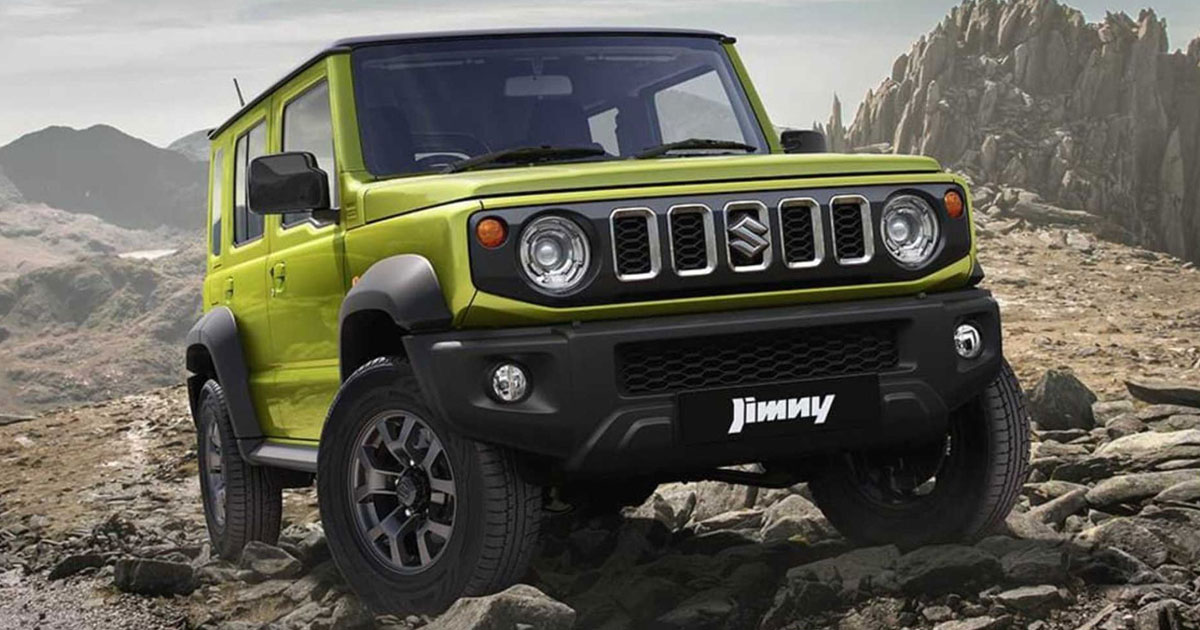
Would you believe that the first automobile ever produced by Japanese automaker Suzuki was a box-shaped, round-headlights, 4×4 Jeep clone called the SJ? Over the years, the SJ evolved into other popular, Jeep-like offerings from Suzuki. We like the Sidekick and the X-90.
Geo Tracker/Chevy Tracker
![]()
Chevrolet’s attempt at a Jeep clone has its own rabid fan base, though most serious Jeep aficionados will be quick to list the ways in which it doesn’t compare to the real deal. For many children of the 80s and 90s, what is remembered most about the Tracker are the bold colors it was offered in. In particular, the teal offerings of that period stick with many.
Mercedes-Benz Unimog
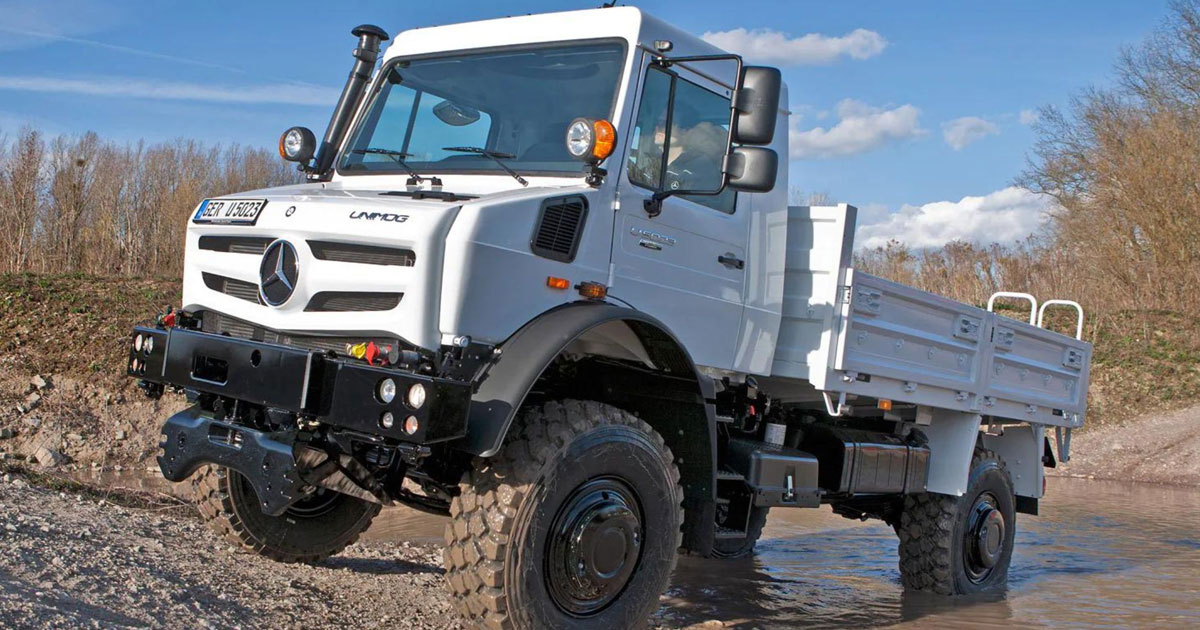
The United States isn’t the only place where military officials and recreation lovers created a market for a vehicle that could go anywhere and do anything. The Daimler-manufactured Unimog does not look quite as much like a Jeep as some of our other entries since the steeply sloping hood makes it look more like a cross between a tractor and a lorry than a passenger car. However, it does get points for the cute, round headlights and distinctive grill design. The name is shorthand for “Universal Motor Gerät,” with Gerät being a German word for “machine” or “device.”
DKW Munga
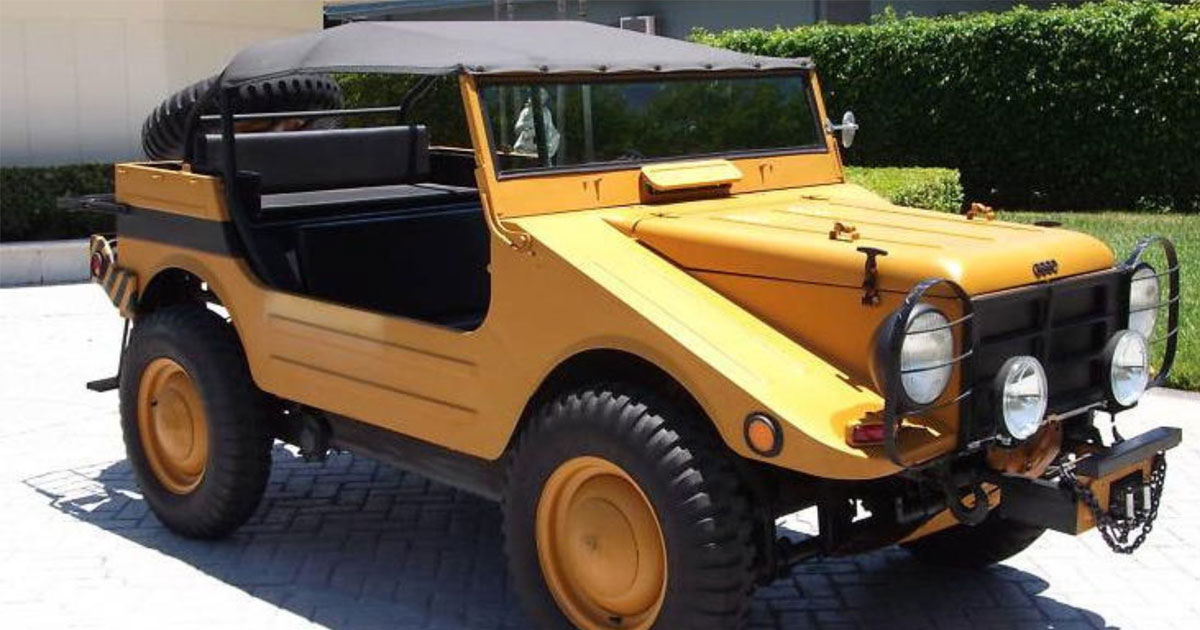
Another German military vehicle, this obscure Jeep rival has the unexpected distinction of somehow evolving into the beloved Audi Quattro of today. DKW stands for “das Kleine Wunder,” which means “the little wonder” in German. The company had already formed and begun producing quality automobiles decades before the outbreak of World War II.
However, the Munga has somewhat of a parallel origin story to our Jeep, having been commissioned as a military vehicle. Munga is an acronym for “Mehrzweck Universal Geländewagen mit Allradantrieb,” or “multi-purpose universal all-terrain four-wheel drive vehicle.” In our opinion, none of these options roll off the tongue the way “Jeep Wrangler” does.
Mercedes-Benz G-Class
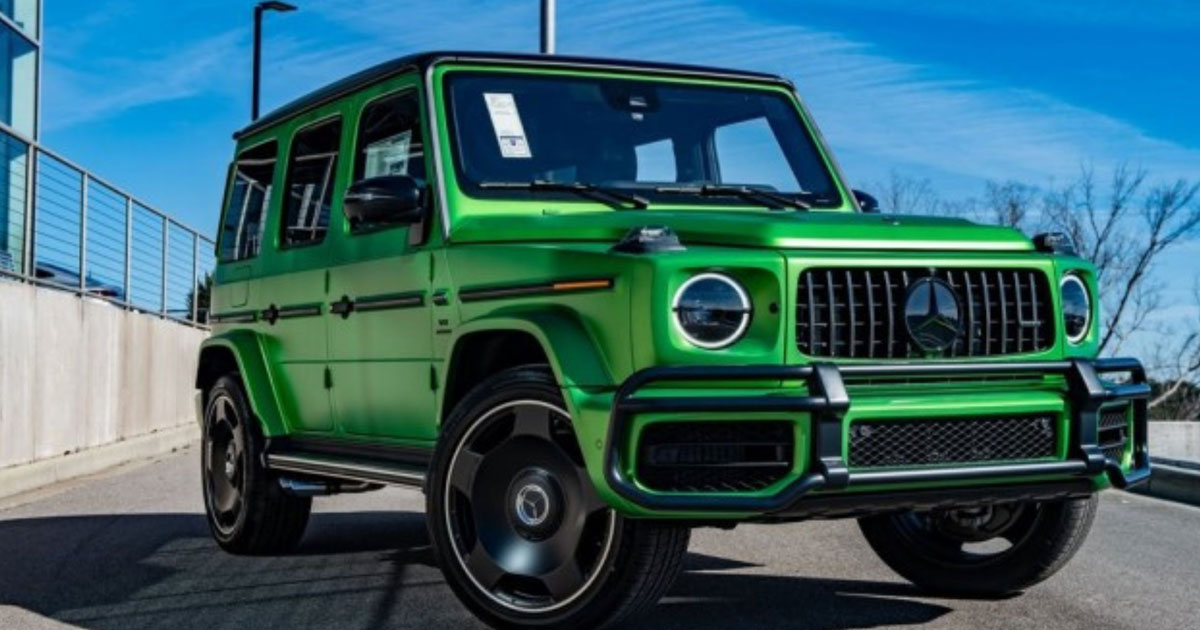
The G-Wagon, as some fans love to call it, has been around since 1979. Over that time, it developed a reputation as a luxury car that looks like a Jeep rather than a legitimate go-anywhere light SUV. While you will get that storied Mercedes reliability with 400 or 500 horsepower behind it, you’ll have to shell out $100,000 or more for the privilege. The looks are undeniably stunning and are more reminiscent of a sci-fi artist’s sketch of what the Jeeps of the future might look like than a modern passenger vehicle.
The Best Jeep Model Is the One You Love
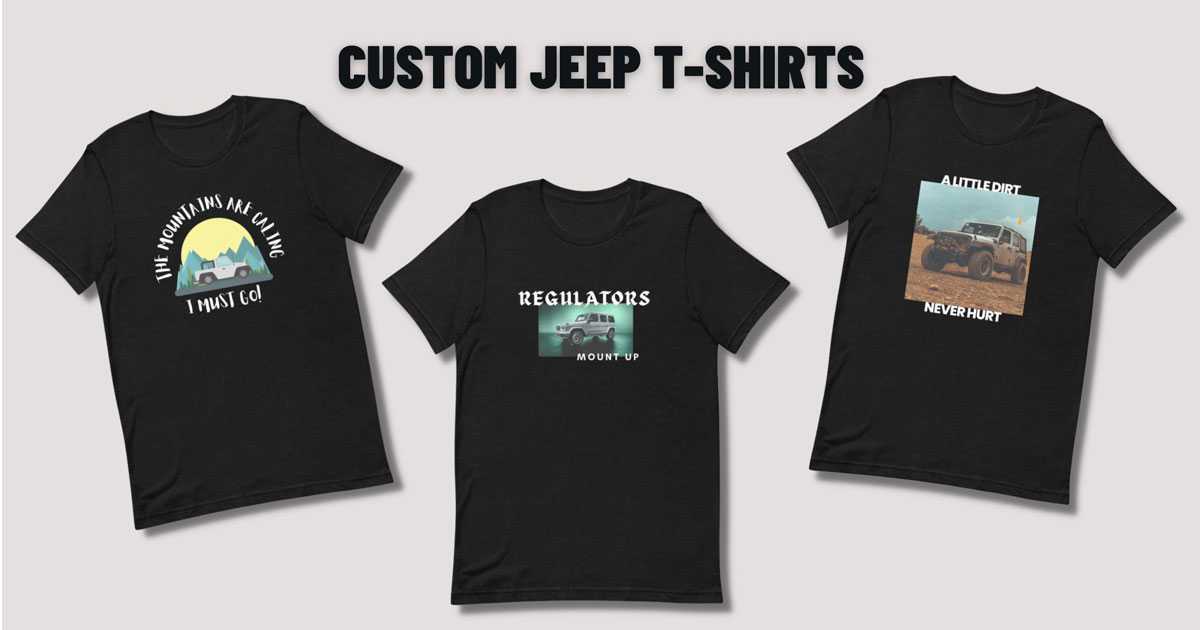
Now that you have some options to choose from, it’s time to start visiting dealerships for a test drive. Alternatively, consider hitting up classified ads to find the perfect vintage Jeep for your rebuild project.
And, now that you’re officially a member of the Jeep club, be sure to visit our store for awesome Jeep t-shirts and other gift ideas for the car lovers in your life!




